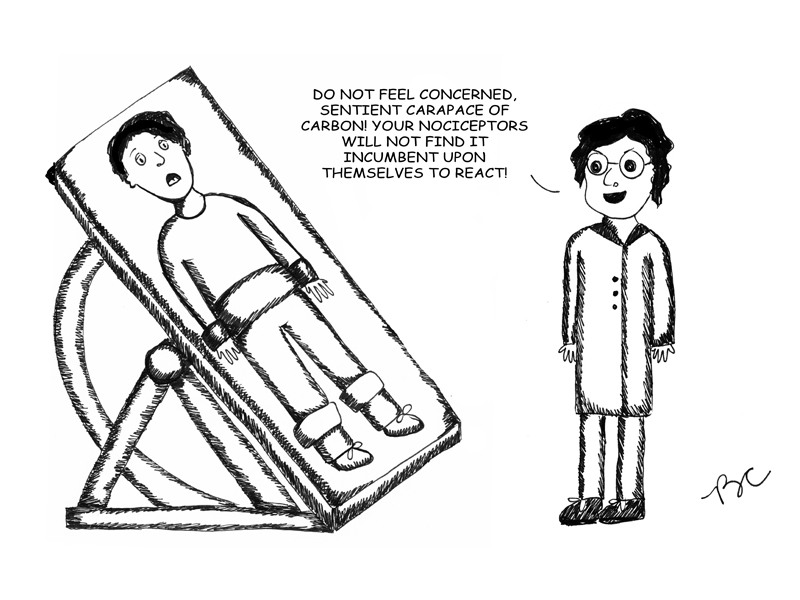
There are numerous steps involved in beginning your college career: the daunting application, the self-anger at being “too lazy” in high school while filling it out, and the stressful wait for acceptance letters. But to pile on another obstacle after that process is the next decision: What major will you be? It’s pleasant when someone consoles you that you have four years to decide what you want to do with your life. However, this assumption is incorrect. You actually have four years until you are thrown out into the workforce to find a job. So choose wisely — your major is your pathway to success.
This idea has been drilled into our minds, leading students to label certain majors as successful and sometimes just plain unnecessary. Perhaps most notably, the humanities have earned the title of “easy” or perhaps “unrealistic” for a stable career. On June 12, the American Academy of Arts and Sciences delivered a report to Capitol Hill stating that the humanities majors are now endangered, as the enrollment for these majors has been declining. There has been an unfair stigma placed on humanities majors that has led to the decline of skills that can be learned through these majors and applied in all fields of expertise.
The humanities are losing popularity but what needs to be emphasized in order for students to be encouraged to enroll in such majors are the skills learned in these courses. According to the Bureau of Labor Statistics (BLS), the National Association of Colleges and Employees revealed that employers’ main criteria is the ability to communicate effectively. This is a skill that humanities majors hone, as well as interpersonal skills, problem solving and analytical abilities. The report also revealed that humanities majors — or liberal arts majors as stated by the BLS — have a wide range of job opportunities open to them including retail trade, social assistance, management, sales and even graphic arts.
These careers are ones that are normally associated with the humanities majors. But what students have not understood is that the humanities are not limited to non-science careers. What is also not recognized amongst students that are pursuing a medical career is that medical schools sent 51 percent of their acceptance letters to humanities majors in 2010. The Association of American Medical Colleges (AAMC) stated that the admissions committee knows that medical students with a humanities major have the ability to develop the skills of “acquiring, synthesizing, applying and communicating information through a wide variety of disciplines.”
For instance, a study by anthropologist David Thornton Moore researched the skills anthropology majors learned, including “experiential learning.” Moore revealed that the skills of experiential learning better prepared students for their later careers, even ones that had “nothing to do with anthropological subjects.”
The skills anthology majors learn are the abilities to apply a theory learned in the classroom environment, gain personal development, and the ability to give back to the community. It is certain these skills can be applicable to any job on the market, allowing one to be a valuable candidate for a successful career.
It has been deemed that humanities majors have not led to these successful careers since they do not provide the exact high-paying job that an engineering major or a computer programmer is designated for. In this economic time it seems as though the logical solution is to go into a major that will provide a job and guarantee a stable career. But the American Academy of Arts and Social Sciences in their congressional report state that it is vital that the American education system emphasizes the importance of the humanities to promote innovative understanding of ethics, morals and reflection on the past ideas that have been contemplated over time.
On April 30, Damon Horowitz, In-House Philosopher and Director of Engineering at Google, encouraged in his lecture to “quit your tech job and get a Ph.D in Humanities.” To the Northwestern community, Horowitz discussed the importance of linking the humanities with technology. By utilizing the philosophical views he had acquired from his humanities classes he shifted from the technological perspective that he had before to a more humanitarian one. He realized that the machines that he worked on did not have ethics or humanity, stating that students should learn how to program computers but also learn teachings in history, diverse experiences, thoughtfulness and humility. In so doing, we are able to direct these technological skills to better humanity.
In a more philosophical point of view, science is a great field of study but the importance of studies in the humanities are still relevant today. In order to improve the thinking abilities of future generations there needs to be an emphasis on humanities to progress humanity as a whole. Although the skills of programming, scientific research, medicine and so forth improve living conditions, it is ultimately fruitless if the sole base lacks a humanitarian goal.








